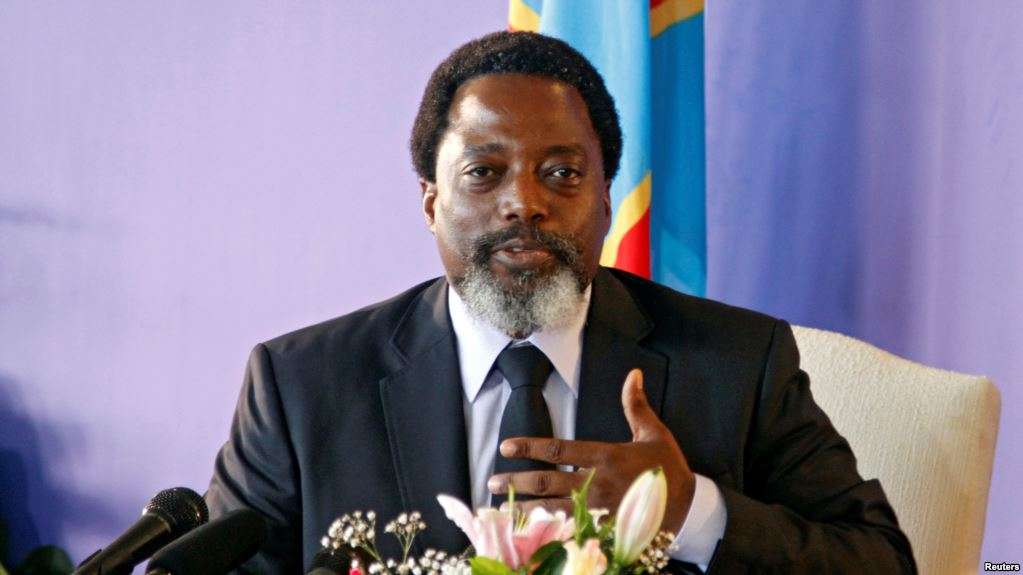GOMA – Joseph Kabila, the President of the Democratic Republic of Congo, whose refusal to step down at the end of his mandate in 2016 sparked protests across the country will address the nation before July 20 where he is expected to announce ‘important decisions’ about whether he would seek a third term in office.
Kabila who has been in power since 2001 following the assassination of his father has not clearly stated whether he will seek a third term or step down.
The president will address the nation in front of the two houses of parliament gathered in Congress, said the speaker of the National Assembly, Aubin Minaku.
Lambert Mende, the minister of communications, had earlier told SoftPower News that the world would know whether Kabila will seek a third term or not this month.
Candidates for the December 23 presidential election must declare their bid between July 25 and August 1, according to the country’s electoral commission.
Opposition politicians and human rights activists accuse Kabila and his allies of planning to extend his rule, deepening the central African nation’s political crisis.
“Congo will experience further political violence if Kabila refuses to step down,” said opposition lawmaker Martin Fayulu by phone.
DR Congo, Africa’s largest copper producer, has never had a peaceful transfer of power and the country has failed to defeat dozens of militia groups including Allied Democratic Front, an Islamic rebel from Uganda.
On Thursday, the UN Secretary General Antonio Guterres said he had agreed to postpone his visit to the Democratic Republic of Congo to allow President Joseph Kabila announce “important decisions.”
Guterres was due to visit Congo this month as the country prepares for elections which many believe could cause violence should Kabila decide to participate.
“The reason that was given for the delay of my visit was that the President will announce very soon, a number of ‘important decisions,’ Guterres told a news conference at UN headquarters in New York on Thursday.
Guterres said Kabila did not want to “give the impression” that his decision on his political future was taken “because of western power.”
If Kabila “wants to give the impression that no international pressure has led him to take the right decision, I will be very comfortable with the postponement,” explained Guterres.








